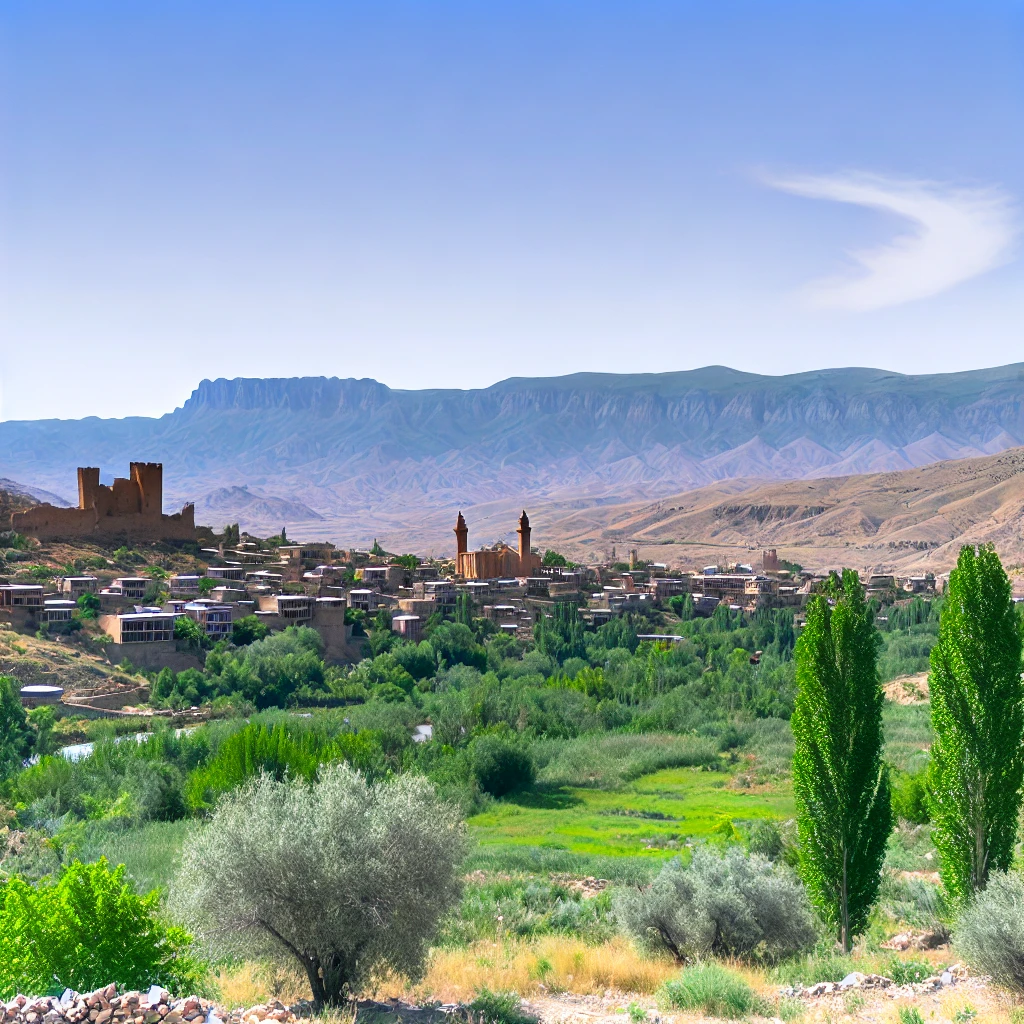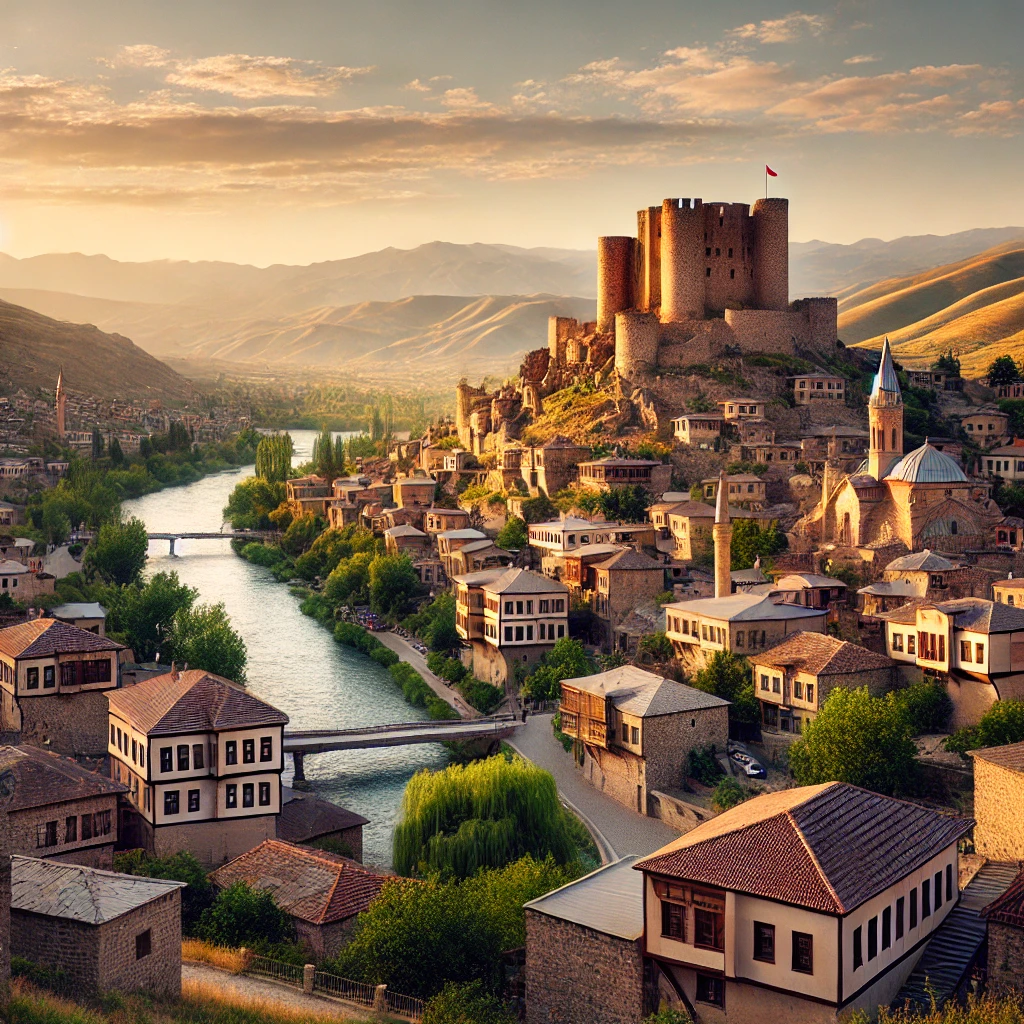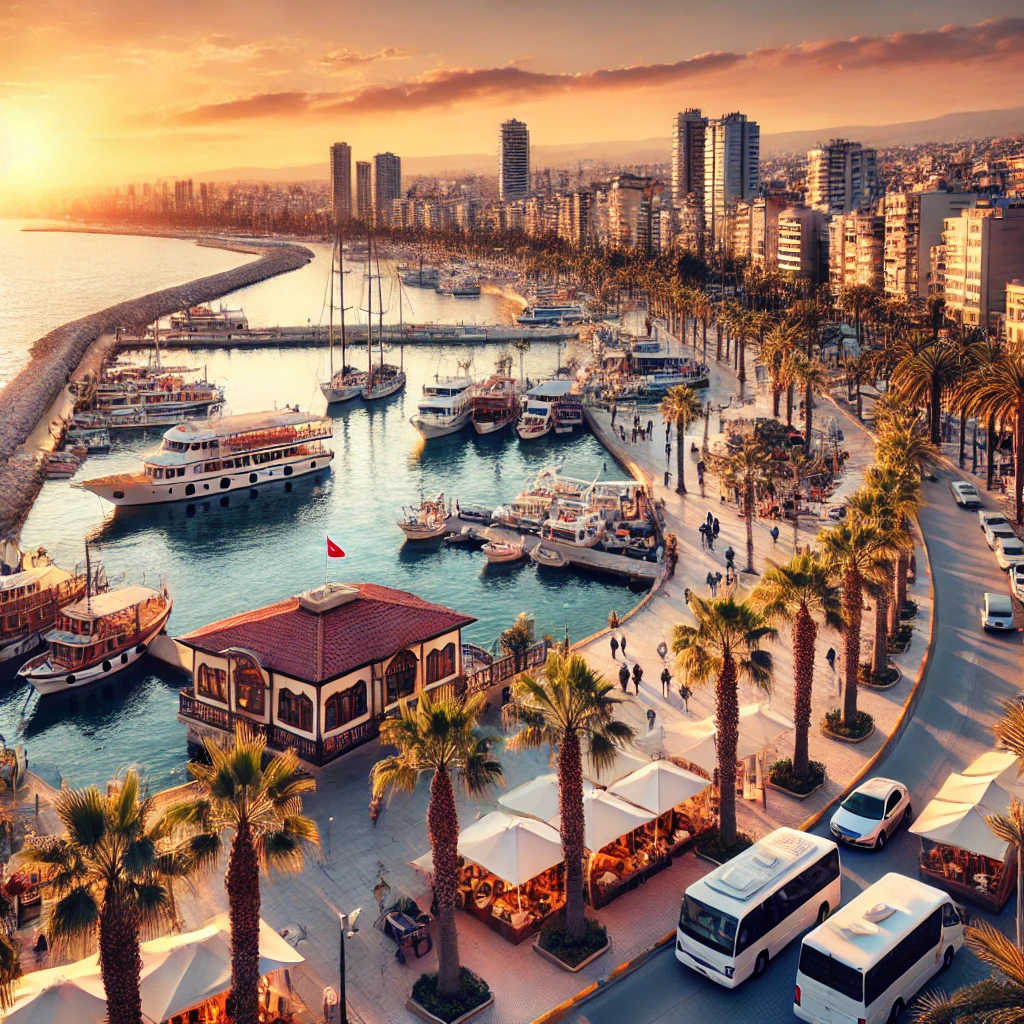Frequently Asked Questions (FAQs)
Find answers to the most common questions about traveling to Turkey, booking trips, and using VisitTurkey.in. Our comprehensive FAQs page is designed to provide you with all the information you need for a smooth and enjoyable travel experience.
The most visited city in Turkey in 2024 is Istanbul. As one of the world’s top tourist destinations, Istanbul continues to attract millions of visitors each year. In the first four months of 2024 alone—January, February, March, and April—Istanbul welcomed a total of 5,244,936 foreign visitors, according to the Turkish Ministry of Culture and Tourism. This underscores the city’s enduring appeal as a cultural and historical hub.
If you’re planning to explore Turkey by car, here’s what you need to know about driving with a foreign driver’s license:
Requirements for Driving in Turkey
Foreigners can drive in Turkey under the following conditions:
- Valid Driver’s License:
- You can use your foreign driver’s license in Turkey. However, it’s recommended to carry an international driver’s license (International Driving Permit – IDP) in addition to your home country license.
- Documentation:
- Always carry your passport, international driver’s license (IDP), and the vehicle’s registration documents (vehicle license) while driving.
Driving Rules and Regulations
- Drive on the Right: In Turkey, driving is on the right side of the road.
- Speed Limits: Pay attention to speed limits, which are clearly posted. The general speed limits are:
- Urban areas: 50 km/h (31 mph)
- Rural roads: 90 km/h (56 mph)
- Highways: 120 km/h (75 mph)
- Seat Belts: Wearing seat belts is mandatory for all passengers.
- Mobile Phones: Using a mobile phone while driving is prohibited unless you have a hands-free system.
- Alcohol Limit: The legal blood alcohol limit is 0.05%.
Road Conditions and Driving Experience
- Highway Network: Turkey boasts an advanced highway network, facilitating easy access to various parts of the country. The roads are generally well-maintained and signposted.
- Toll Roads: Some highways and bridges have tolls. Make sure to have a toll payment method, such as the HGS sticker or OGS device, which can be purchased from post offices and certain banks.
- City Driving: Driving in cities like Istanbul and Ankara can be challenging due to heavy traffic. Be prepared for congestion, especially during rush hours.
- Rural Areas: Rural roads can be narrow and winding, so exercise caution and be mindful of local driving habits.
Renting a Car
If you plan to rent a car in Turkey, ensure you have the following:
- Driver’s License and IDP: A valid driver’s license and an International Driving Permit (if required).
- Credit Card: A major credit card for the rental deposit.
- Insurance: Check the rental agreement for insurance coverage, and consider additional coverage for peace of mind.
Emergency Numbers
- Emergency Services: 112
- Police: 155
- Gendarmerie: 156
- Road Assistance: 154 (for highway assistance)
- Valid Driver’s License:
Visitors can withdraw money in Turkish Lira (TRY) as well as Euros (EUR) and U.S. Dollars (USD) from many ATMs across Turkey. However, Turkish Lira is the most commonly dispensed currency.
Turkey has long been known as a budget-friendly destination, attracting travelers with its rich history, stunning landscapes, and affordable prices. However, like any country, Turkey’s cost of living and travel expenses can fluctuate due to various factors such as inflation, currency exchange rates, and economic conditions. As of 2024, Turkey remains relatively affordable for most travelers, but there are some nuances to consider.
1. Currency Exchange Rates
- Turkish Lira (TRY): The Turkish Lira has experienced significant volatility in recent years. In 2024, the exchange rate remains favorable for tourists coming from countries with stronger currencies like the Euro, US Dollar, or British Pound. This makes Turkey an attractive destination where your money can stretch further, especially compared to Western Europe.
2. Accommodation Costs
- Affordable Options: Turkey continues to offer a wide range of accommodation options, from budget-friendly hostels and guesthouses to luxurious hotels and resorts. Prices can vary significantly depending on the location and time of year, but in general, travelers can still find affordable lodging, particularly in smaller cities and rural areas.
- City vs. Rural: Major tourist cities like Istanbul, Antalya, and Cappadocia may have seen some price increases, especially in prime tourist areas. However, rural destinations and less touristy cities often remain much cheaper.
3. Food and Dining
- Street Food and Local Restaurants: Turkey is famous for its delicious and affordable street food, such as döner kebabs, börek, and simit. Eating at local restaurants (lokantas) is also very budget-friendly, with meals often costing a fraction of what you’d pay in Western countries.
- Dining in Tourist Areas: While prices in tourist hotspots can be higher, they are still generally lower than in many European destinations. Dining in less touristy neighborhoods will provide a more authentic experience at a lower cost.
4. Transportation
- Public Transportation: Turkey’s public transportation system, including buses, trams, and metros, remains very affordable. Domestic flights are also relatively cheap, especially with low-cost carriers offering competitive prices.
- Car Rentals and Taxis: Car rentals can be a cost-effective option for exploring the country, particularly for groups. Taxis are more expensive but still cheaper than in many Western countries, especially if you use local apps or ride-sharing services.
5. Shopping and Souvenirs
- Local Markets: Shopping in Turkey, especially in local markets and bazaars, can still be a bargain. Handmade crafts, textiles, and spices are popular items that are reasonably priced.
- High-End Stores: High-end and international brands can be more expensive, particularly in upscale areas of cities like Istanbul. However, these prices are often still competitive compared to those in Western Europe or North America.
6. Tourist Attractions
- Historical Sites and Museums: Entrance fees to Turkey’s many historical sites and museums are generally modest, though there have been some increases in recent years. However, they still offer excellent value for the cultural and historical experience they provide.
- Guided Tours: Organized tours can vary in price, but there are many affordable options available, particularly for group tours or off-season travel.
Conclusion: Is Turkey Still Cheap in 2024?
Turkey remains a relatively cheap destination for travelers in 2024, especially for those who are savvy about where and how they spend their money. While prices have risen in some areas, particularly in major tourist cities, the overall cost of travel, food, and accommodation is still lower than in many other countries. By exploring less touristy areas, eating at local restaurants, and taking advantage of public transportation, travelers can enjoy a rich and diverse experience in Turkey without breaking the bank.
For more travel tips and updated information on costs, be sure to check out the Travel Guide of Türkiye.
Travel Tips help maximize your time and money spent in Europe and beyond. Topics include packing, planning, safety, tourist scams, transportation, money, sleeping, and much more. Here are some practical travel tips to help you make the most of your trip to Turkey.
Essential Travel Tips
Always Carry Your ID and Passport
Tourists should carry their ID and passport with them at all times for their own safety. This ensures you can identify yourself if needed and helps in case of emergencies.
Keep Some Turkish Lira
Even if a small amount of cash, it is advisable to keep some Turkish Lira with you. While credit cards are widely accepted, having cash on hand is useful for small purchases or in areas where cards are not accepted.
Use Travel Guides and Maps
Printed or digital travel guides and maps informing about the location you are visiting will help you get around and save valuable time so that you can focus on things worth seeing and doing.
Obtain a Museum Pass
Visitors who are planning to join culture tours in Istanbul, or Turkey in general, will be granted faster and cheaper admission to museums if they obtain a Museum Pass.
Use Online Check-In for Flights
Travelers who anticipate possible traffic congestion can use the online check-in system before arriving at the airport to avoid running the risk of missing their flight.
Take Advantage of Tax-Free Shopping
Tourists may benefit from tax-free shopping in Turkey by applying at the tax refund offices at the airports with their purchase receipts.
Purchase Prepaid SIM Cards
Tourists in Turkey may prefer to purchase prepaid SIM cards from the stores of local GSM operators to make cheap local and international calls and avoid any connection problems.
Wear Comfortable Clothes and Shoes
Wearing comfortable clothes and sports shoes will make you feel more comfortable if you are planning to participate in cultural tours during your stay in Turkey.
Use Public Transportation
Obtaining a public transportation card and making use of public transportation facilities is more practical and cheaper if you intend to spend your holiday in one of Turkey’s metropolitan areas.
Keep a Turkish Dictionary
It is advisable to keep a Turkish dictionary with you at all times. Finding people who speak foreign languages may not be possible at all times.
Rely on Local Hospitality
Turkish people are well known for their hospitality and friendliness. If you need help, you may ask the people around you; they will not turn you down.
Antalya is located on the Mediterranean Sea. This coastal city is situated along the Turkish Riviera, known for its stunning beaches and crystal-clear waters, making it a popular destination for tourists seeking sun, sea, and cultural experiences.
Can I withdraw money from ATMs?
Visitors may withdraw money in Turkish Lira as well as Euro and U.S. Dollar with their debit cards from ATMs in Turkey. The majority of ATMs offer English language or other language options for the convenience of foreigners.
Can I use my credit cards for shopping?
Visitors may use their credit cards and debit cards for all kinds of purchases. It is advisable, however, to carry some cash with you in case you take trips away from the city center or travel to smaller towns or villages.
What is the local currency in Turkey?
Turkish Lira is the local currency of the Republic of Turkey. Visitors can exchange their cash money for Turkish Lira at exchange offices and banks.
Can I drive in Turkey with my driver’s license?
Foreigners may drive in Turkey provided that they keep their passport, international driver’s license, and the vehicle license with them all the time. Turkey drives on the right side of the road and the advanced highway network allows easy access to different corners of the land.
What kind of sockets are used in Turkey?
European two-pin sockets are widely used in Turkey, as everywhere in continental Europe.
Do I have to speak Turkish to interact with people during my visit?
English is the most spoken foreign language everywhere in Turkey. You should have no problem meeting people who can speak English and help you get around in all the big cities, shopping malls, restaurants, and holiday resorts.
Can I use my mobile phone in Turkey?
Many international GSM operators provide coverage in Turkey in addition to local GSM operators such as Turkcell, Avea, and Vodafone. You may ask your GSM operator to activate the international roaming function of your mobile phone before traveling to Turkey or obtain a new SIM card from local operators in Turkey.
What are the opening and closing times of museums in Turkey?
All of the museums in Turkey are closed on Monday and are open to visitation from 9:00 to 17:00 on the other days.
What are the opening hours of pharmacies in Turkey?
Pharmacies are open across the country every day from 09:00 to 19:00 except for Sunday. One pharmacy, however, is open 24/7 in each neighborhood by the time the others are closed.
What are the opening hours of shopping centers in Turkey?
In Turkey, shopping centers are open every day offering a variety of trademarks and services usually from 10:00 am until 22:00 pm.
What are the opening hours of banks in Turkey?
In Turkey, banks are in service of their customers from 09:00 to 17:00 on weekdays but are closed on weekends.
What is the time zone in Turkey?
The time zone in Turkey situated at the connecting point of Asia and Europe is GMT +2.
Do I need any vaccinations before going to Turkey?
There are no mandatory vaccinations before traveling to Turkey.
Kuruçeşme, located on the European side of Istanbul, is a favored hangout for the city’s wealthy residents and visitors. Known for its luxurious waterfront properties and upscale restaurants, Kuruçeşme offers a sophisticated atmosphere paired with stunning views of the Bosphorus. This neighborhood is a popular destination for those seeking an exclusive and elegant experience in Istanbul.
Mersin, with its charming towns of Erdemli and Silifke, is often celebrated as one of Turkey’s most beautiful cities. Known for its breathtaking Mediterranean coastline, Mersin offers a mix of pristine beaches perfect for relaxation, swimming, and sunbathing. Beyond its unspoiled natural beauty, Mersin also boasts numerous beach resorts with top-notch facilities and a variety of water sports, making it a top destination for beach lovers and vacationers alike.
Discover the best of travel Turkey. Explore top tourism spots, rich cultural heritage, and vibrant cities. From ancient ruins to stunning beaches, find tips on the best destinations, hotels, flights, and tours to make your Turkish adventure unforgettable. Dive into the wonders of tourism in Turkey and plan your perfect trip today!
Top Destinations in Turkey
Explore Turkey’s top destinations, from Istanbul’s vibrant streets to Cappadocia’s unique landscapes and Antalya’s beaches.
Isparta
Isparta, a charming city nestled in western Turkey, is renowned [...]
Atatürk Monument, Aya Payana Church, City of Roses, culture, Eğirdir Lake, Firdevs Bey Mosque, hidden gem, historical sites, Iplik Camii, Isparta, Isparta attractions, Isparta carpet weaving, Isparta climate, Isparta Clocktower, Isparta geography, Isparta history, Isparta Museum, Isparta rose gardens, Isparta rosewater production, Isparta tourism, Ispartaspor, Kutlu Bey Mosque, Lake Eğirdir, Lake Kovada National Park, Roman era Isparta, rose gardens, Şehitler Parkı, Süleyman Demirel Statue, Süleyman Demirel University, things to do in Isparta, tourism, travel, Turkey
Şırnak
Şırnak, a city in southeastern Turkey, is the capital of [...]
ancient city Şırnak, Kurdish Şırnak, Şırnak, Şırnak archaeological sites, Şırnak culture, Şırnak education, Şırnak festivals, Şırnak history, Şırnak landscapes, Şırnak local cuisine, Şırnak museums, Şırnak natural beauty, Şırnak tourism, Şırnak transport, Şırnak travel guide, Şırnak Turkey, travel Şırnak, visit Şırnak
Mardin
Mardin, a city perched on the southeastern edge of Turkey, [...]
ancient architecture, Arabs, Artuqid architecture, cultural festivals, culture, Deyrü'z-Zafaran Monastery, Emineddin Külliyesi, Great Mosque of Mardin, hidden gem, historical city, historical landmarks, historical sites, Kasım Pasha Medrese, Kurds, local markets, Mardin, Mardin accommodation, Mardin attractions, Mardin Bazaar, Mardin cuisine, Mardin transportation, Mesopotamia, Mor Behnam Church, old city, souvenirs, Sultan İsa Medrese, Syriac Christians, things to do in Mardin, Tigris River, tourism, traditional markets, travel, travel guide, Turkey, UNESCO
Osmaniye
Osmaniye, a city situated on the eastern edge of the [...]
ancient city Osmaniye, Osmaniye, Osmaniye archaeological sites, Osmaniye culture, Osmaniye education, Osmaniye festivals, Osmaniye history, Osmaniye landscapes, Osmaniye local cuisine, Osmaniye museums, Osmaniye natural beauty, Osmaniye tourism, Osmaniye transport, Osmaniye travel guide, Osmaniye Turkey, Ottoman Osmaniye, travel Osmaniye, visit Osmaniye
Hakkâri
Hakkâri: Nestled in the rugged terrain of southeastern Turkey, Hakkâri [...]
adventure travel, Assyrian heritage, Cilo Mountains, Hakkâri, Hakkâri attractions, Hakkâri City, Hakkâri history, Hakkâri travel guide, historical sites, Kurdish cuisine, Kurdish culture, Kurdish festivals, Kurdish tribes, Naqshbandi order, Newroz festival, outdoor activities, Sat Mountains, Şemdinli, southeastern Turkey, traditional Kurdish food, travel enthusiasts, trekking, Turkey, Turkey travel, visit Hakkâri, Zap Valley
Malatya
Malatya, a large city in the Eastern Anatolia region of [...]
ancient city Malatya, Malatya, Malatya archaeological sites, Malatya climate, Malatya culture, Malatya education, Malatya festivals, Malatya history, Malatya landscapes, Malatya local cuisine, Malatya museums, Malatya natural beauty, Malatya tourism, Malatya transport, Malatya travel guide, Malatya Turkey, Ottoman Malatya, travel Malatya, visit Malatya
Sinop
Sinop, historically known as Sinope, is a picturesque city nestled [...]
Akliman Beach, Alaaddin Mosque, Black Sea coast, Hamsilos Bay, İnceburun Lighthouse, Pervane Medrese, Sinop, Sinop attractions, Sinop culture, Sinop festivals, Sinop Fortress, Sinop Fortress Prison, Sinop history, Sinop local cuisine, Sinop natural beauty, Sinop tourism, Sinop traditional crafts, travel to Sinop, Turkey travel, visit Sinop
Batman
Welcome to Batman, a city that holds a unique charm [...]
ancient Caria, Batman, Batman Airport, Batman province, Batman University, cultural heritage, festivals, Hasankeyf, historical ruins, Kurdish culture, Mediterranean climate, Menteşe dynasty, oil industry, scenic views, Tigris River, tourism, transportation, travel destination, Turkey, Zeynel Bey Mausoleum
Bitlis
Bitlis, a city nestled in the heart of southeastern Turkey, [...]
agriculture, Ahlat Seljuk Cemetery, Armenian history, Bitlis, Bitlis Castle, Bitlis climate, Bitlis culture, Bitlis District, Bitlis economy, Bitlis Province, Bitlis River, Bitlis weather, coarse cloth, Diyarbakır, Güroymak Hot Springs, historical sites in Bitlis, Kurdish history, Lake Van, leatherworking, medieval architecture, Muş, Nemrut Crater Lake, Ottoman Empire, southeastern Turkey, Tatvan, Tigris tributary, tobacco products, tourism in Bitlis, travel to Bitlis, weaving
Mersin
Mersin, a bustling port city on Turkey’s Mediterranean coast, is [...]
Adana Şakirpaşa Airport, beaches, Ciğer kebap, culture, day trips, Forum Mersin, Heaven and Hell Sinkholes, hidden gem, historical sites, local bazaars, Mamure Castle, Mediterranean coast, Mersin, Mersin Archaeological Museum, Mersin attractions, Mersin HiltonSA, Mersin International Music Festival, Mersin Marina, Mersin State Opera and Ballet, Soli/Pompeipolis, Tantuni, Tarsus, things to do in Mersin, tourism, travel, Turkey, Yumuktepe Mound
Adıyaman
Adıyaman, Turkey, is a hidden treasure in the southeastern region [...]
Adıyaman, Adıyaman Airport, Adıyaman attractions, Adıyaman Kebab, Adıyaman Museum, ancient ruins, Arsameia, Atatürk Dam, Cendere Bridge, Çiğ Köfte, culinary delights, cultural heritage, culture, Gaziantep, hidden gem, historical sites, International Nemrut Kommagene Festival, Kahta, Karakuş Tumulus, local markets, Mount Nemrut, natural beauty, outdoor activities, Perre Ancient City, Şanlıurfa, scenic landscapes, tatlı, things to do in Adıyaman, tourism, traditional handicrafts, travel, Turkey
Bilecik
Bilecik: Nestled in northwestern Anatolia, Turkey, Bilecik is a city [...]
accommodation, best time to visit, Bilecik, Bilecik Culture and Art Festival, Ertuğrul Gazi Nature Park, Ertuğrul Gazi Tomb, festivals, fishing, hiking, history, Karasu River, local cuisine, natural beauty, Orhan Gazi Mosque, Pelitözü Pond, Şeyh Edebali Tomb, Söğüt, traditional dishes, travel, Turkey, Turkish houses












